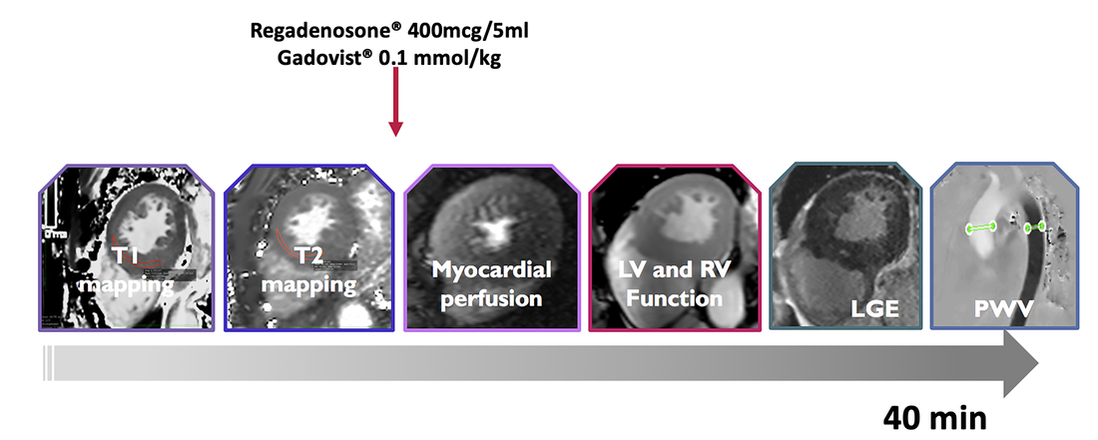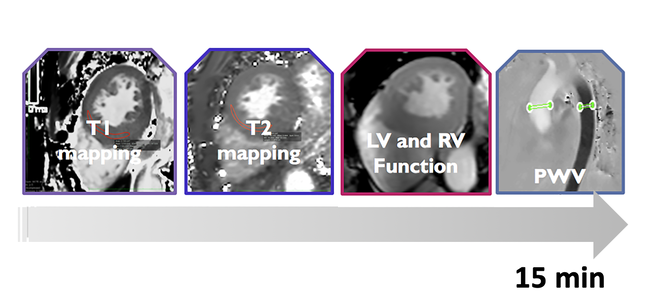Towards Understanding the Phenotype of Cardiovascular Disease in Chronic Kidney Disease |
Premature cardiovascular disease (CVD) is the leading cause of death in patients with kidney disease (CKD). Excessive cardiac mortality is thought to be secondary to non-atherosclerotic processes, with left ventricular (LV) hypertrophy (LVH) and remodelling being the predominant phenotypical features. Along with other risk factors, subclinical ischaemia and haemodynamic perturbations associated with haemodialysis (HD) are thought to contribute to the ultimate development of LV systolic and diastolic dysfunction. The development of these adverse features reflects a specific cardiomyopathy due to CKD and subsequently, to uraemia. Patients receiving hemodialysis (HD) have a higher incidence rate of heart failure (predominantly with preserved ejection fraction), with phenotypically eccentric hypertrophic remodelling, systolic and diastolic dysfunction as well as high rate of interstitial myocardial fibrosis. Detection and ultimately reversal of the development of this CKD-related cardiomyopathy are important goals for improving the CVD, morbidity and mortality of CKD patients.The objectives of this study are, firstly, to investigate the complex myocardial phenotype in patients with various stages of CKD, secondly, to relate the CMR-measures to outcome, and thirdly, to be able to estimate the effects of chronic uremia/hypervolemia. Deciphering the predominant driver of remodelling on an individual level may help to personalise anti-remodelling strategies. Native T1 and T2 mapping imaging provide non-invasive imaging tools to detect myocardial fibrosis and oedema, respectively. Prognostic associations of these measures may clarify the relative prevalence of adverse phenotype and their relative contribution to adverse events and poor outcome. The role of chronic water retention and uraemia may be associated with interstitial myocardial oedema promoting further the remodelling process.
|
Registration |
clinicaltrials.gov (NCT03749551)
|
Principal Investigator(s) |
Collaborators |
|
Priv. Doz. Dr. Valentina Puntmann, Institute of Cardiovascular and Experimental Cardiovascular Imaging, Goethe CVI Frankfurt, University Hospital Frankfurt, Germany
Prof Dr Eike Nagel, Institute of Cardiovascular and Experimental Cardiovascular Imaging, Goethe CVI Frankfurt, University Hospital Frankfurt, Germany |
Prof Dr Ingeborg Hauser, Department of Nephrology
Division of Internal Medicine-ZIM III, University Hospital Frankfurt, Frankfurt am Main Prof Dr Andreas Zeiher, Department of Cardiology Division of Internal Medicine-ZIM III, University Hospital Frankfurt, Frankfurt am Main Prof Dr Thomas J Vogl Head of Department of Diagnostic and Interventional Radiology University Hospital Frankfurt, Frankfurt am Main Prof Dr Eva Herrmann Institut für Biostatistik und Mathematische Modellierung am Fachbereich Medizin University Hospital Frankfurt, Frankfurt am Main with support from Hesse Network of Nephrologists |
Study design
An observational longitudinal outcome study of patients with chronic kidney disease
Inclusion criteria |
Exclusion criteria |
|
|
Baseline CMR Protocol
An optional second study (after dialysis)
Interested to take part in TrueTypeCKD Study? |
Where to find usInstitute for Cardiovascular and Experimental Cardiovascular Imaging, Goethe CVI
Haus 25B Ground floor, University Hospital Frankfurt, Theodor Stern Kai 7, Frankfurt, 60590 Germany |



